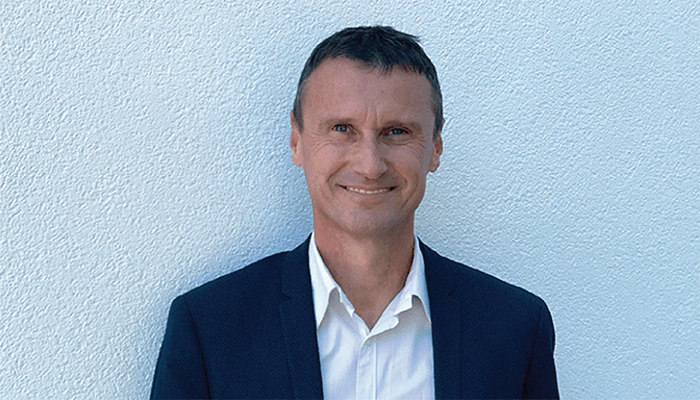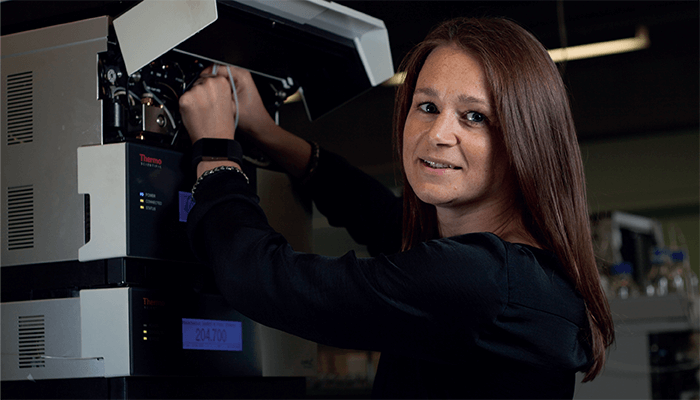There’s a common saying: “Involve me and I will learn.” But the truth is that it can be difficult to leverage student curiosity prior to the PhD level. In BSc or MSc stages, we often don’t have the time to set up intriguing lab work for all the different classes we teach in separation science. And chromatography instruments are expensive – so in our basic courses we are limited to one instrument for every 5 to 10 students. That hampers hands-on involvement, which in effect means there’s no outlet for student curiosity.
In our experience, basic courses such as general analytical chemistry are perceived as boring by many first-year students. It gets better when we start teaching actual chromatography, which is where the coursework becomes more obviously applied – but that comes later. In the meantime, if you’re faced with the challenge of first-year analytical chemistry, you can try to make it more interesting by giving examples of how the concepts you are explaining and the experimental tools you are demonstrating are used in real life. The idea is to continually make a link to current challenges and provide glimpses of the future so that students understand why analytical chemistry techniques are necessary and how they are actually applied. This helps bring home to the students that their future careers rely on a firm understanding of the basics.
But even that is a passive way of learning. If we really want students to be curiosity-driven, we must allow them to explore things themselves. Give them a problem and let them develop solutions independently. Unfortunately, for chromatography this is only possible at the PhD level, where the number of instruments roughly matches the number of students. Another issue that compromises undergraduate courses in analytical chemistry is that chromatography is increasingly taught as just one of many chemical analysis methods; dedicated separation science courses hardly exist anymore. This is probably a consequence of funding patterns – it is now easier to get grant money for applied research than for fundamental research, so basic research groups have transformed into applied research groups. That’s why we have departments for toxicology or biopharmaceutical analysis, for example, instead of pure analytical chemistry departments.
You see the same pattern in pharmacy departments; here, too, separation sciences are downplayed in favor of biotechnology, especially since the onset of the pandemic. The real shame is that the time stolen from separation sciences is often given to the development of soft skills, such as presentation techniques. In our view, it’s a mistake to put resources into developing these skills at the cost of ending up deficient in key fundamentals. People can always pick up soft skills later, or have already acquired them during high school, but making up for missed opportunities to acquire fundamental techniques is not so easy.
We should focus on teaching students the basics so that they are well-equipped to later address real-world applications. We should be sending them into the world with a reliable skillset; instead, we’re just teaching them selected ways chromatography is used. Their fundamental instruction is curtailed and the result is that they might never really understand the technology. Unfortunately, this reflects a general trend to simplify undergraduate courses – in the engineering faculty, for example, “difficult” subjects, such as mathematics, have been decreasing in size over the past 20 years. The more challenging subjects in pharmacy courses also have been dropped. Bluntly, it’s also about the money – universities are partly funded according to the number of degrees they issue, so they are under pressure to record high pass rates. The more difficult modules, which require more investment from students, are simply not compatible with this driver and in some faculties this has led to a reduction of the number of hours devoted to the “hard” courses.
Given the constraints that now apply to today’s science courses and restrict teaching, it is even more essential to develop ways to motivate students. How might we do this? We believe it is vital to be enthusiastic. Try to show students not only the real-world applications of what you’re teaching, but also your passion for the techniques and their applied impact. Do that and you can drag your students with you! Above all, don’t be the kind of teacher that just sits at the front of the class and reads out of a course handbook – be animated, driven, and passionate! It makes a huge difference. That’s also important for postgraduate students, by the way – they, too, may need encouragement and motivation.
It’s true that some students are more difficult to motivate than others – for example, those who are just doing the course because their parents want them to get a degree! Naturally, it’s easier to teach ambitious, self-driven students who have the will to grapple with the harder topics. Nevertheless, one motivation tactic that may help with even reluctant learners is to emphasize that industry values the skills taught in separation science and that separation scientists will have many job opportunities to choose from.
We can also remind them that a good understanding of the basics is essential to any career in separation science. Without this, you cannot maximize process efficiency, something many students do not appreciate. Standard questions asked during a PhD defense may include, “Why did you pick this flow rate, or this gradient, or this column?” Usually, the students haven’t even considered these questions; they copied what the PhD student working on the project before them was doing, and have little understanding of what is happening at the methodological level. This unquestioning approach – this lack of curiosity – is a consequence of failure to achieve an understanding of the basics. It’s such a pity!
But it’s not only a lack of curiosity, it’s also a lack of competitive drive – a lack of desire to be the best. This can manifest itself in mental laziness; for example, people put a new kind of column into an existing system without thinking through the compatibility issues and then not understand why they don’t get the promised separation performance. Again, it’s so important to understand the basics. If you don’t, things can go horribly wrong; in the best case, wasting valuable time, and in the worst case, failing to detect dangerous impurities.
Overall, to motivate students – including those who may be a little less ambitious or curiosity-driven than we would like – we ourselves must set a good example. Just ensuring you are always the first one to arrive in the morning can make a difference. In other words, the general has to be in the front line! In addition, exposing students to conferences and industry can be tremendously helpful – it gives them context and shows them that their work is worth the effort.
Students need experience-based learning mediated by enthusiastic teachers and backed up with examples of real-world applications. Above all, we must persuade them of the importance of understanding the key fundamental principles of separation science!






